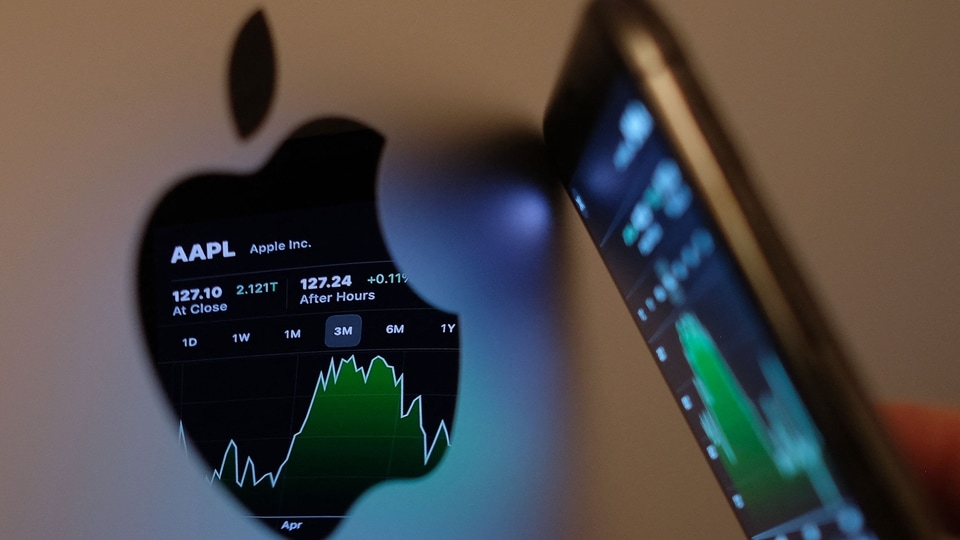Apple faces longest sales slowdown in decades as iPhone slumps
Apple Inc. posted its third straight quarter of declining sales and predicted a similar performance in the current period, hurt by an industrywide slump that has sapped demand for phones, computers and tablets.









 View all Images
View all ImagesApple Inc. posted its third straight quarter of declining sales and predicted a similar performance in the current period, hurt by an industrywide slump that has sapped demand for phones, computers and tablets.
After the company reported a revenue decline of 1.4% in the fiscal third quarter, Chief Financial Officer Luca Maestri said on a conference call that Apple's performance would be similar this period. An additional drop would mark the longest streak of declines in two decades — a startling slowdown for the world's most valuable company.
“The environment is challenging,” Daniel Flax, a senior research analyst at Neuberger Berman, said in an interview with Scarlet Fu on Bloomberg Television. “Consumers face pressure from general interest rates, higher inflation. There are a lot of cross currents that Apple, like a lot of other companies, cannot outrun.”
Though Apple's overall revenue of $81.8 billion came in just above Wall Street estimates last quarter — helped by record-setting services sales — iPhone demand was weaker than predicted. That jarred investors, who sent the stock down as much as 3.2% in extended trading.
Apple shares had been up 47% in 2023 through the close, part of a broader tech-fueled rally this year. If the stock slide continues in regular trading on Friday, Apple risks losing its $3 trillion valuation — a historic milestone that it reached in June.
On the call with analysts, executives blamed foreign exchange headwinds for hurting results. A stronger dollar has eroded the company's revenue, most of which comes from overseas. Maestri, along with Chief Executive Officer Tim Cook, stressed that sales would be up on an annual basis if currency were held constant.
Still, the report showed that Apple's much-prized iPhone hasn't evaded a downturn that has rattled rivals and partners. Qualcomm Inc., a mobile-device chipmaker and iPhone supplier, had already sparked fears about demand with its earnings Wednesday, sending its shares plunging ahead of Apple's report.
It didn't help that Apple had a dearth of new products last quarter — beyond marginal updates to its high-end desktop computers and a larger MacBook Air. The current quarter will be a different picture, with the new iPhone 15 and Apple Watches set to be unveiled during the period.
Sales of the iPhone, Apple's biggest moneymaker, slipped 2.4% to $39.7 billion in the third quarter, compared with a $39.8 billion estimate. Notably, Apple's executives admitted that the smartphone market is going through a slowdown, particularly in the US.
Apple also has been reining in spending. The company slowed down hiring in several areas, Maestri said. “We are very pleased with our ability to decelerate some of the expense growth.”
China was a bright spot, bucking a trend among some of Apple's tech peers. Maestri said that wearables — including the Apple Watch and AirPods — did particularly well in the country. The iPhone also held up in China, serving as “the heart of our results there,” Cook said.
Demand for the iPhone 14 model is tapering off as the company prepares to unveil the next version, which promises to be the most significant upgrade in three years. New iPhones typically debut in September, a few weeks before the fourth quarter ends. That means the bulk of revenue comes in the following period, Apple's fiscal first quarter, which is invariably its most lucrative time of year.
The iPhone 15 Pro models will add new features like a titanium frame, thinner borders around the screen and a faster processor. But given the sluggish state of smartphone spending, it may still be hard to entice some consumers to upgrade.
Apple has informed suppliers that it expects shipments of the device to remain flat with the year before through the balance of 2023, at about 85 million units. Other phone makers, including Samsung Electronics Co., have also seen sales of their devices slow or remain flat.
In the current quarter, Apple expects the year-over-year performance of the iPhone and services to improve. That will outshine the Mac and iPad divisions, which the company said would decline by a percentage in the double digits.
Touching on a hot-button issue, Cook said that the company has been researching generative AI technologies for years. Bloomberg reported last month that Apple has developed its own large language model — a technology like the one used for training AI chatbots such as OpenAI Inc.'s ChatGPT — and is preparing a generative AI push for next year. Such tools can create written content or images based on text prompts.
The iPad, meanwhile, suffered a sales decline of 20% last quarter. That business generated $5.79 billion, versus calls for about $6.33 billion. Apple hasn't updated any of its tablets since last year and won't make any significant changes to the lineup until 2024. The company is preparing to announce a revamped iPad Pro with a superior display in the first half of that year, Bloomberg has reported.
Apple tried to explain away its tablet troubles by blaming a tough comparison with the launch of the iPad Air last year. But that model remains a small part of overall iPad revenue.
In the current quarter, tablets and Macs will be down in part because of factory shutdowns in 2022, Apple said. The disruption prevented consumers from getting products in the third quarter of that year, leading to a surge in the next period. The company won't see that effect this time around, Apple said.
The Mac did perform better than expected this past quarter, even with the lingering slump. Though its sales fell 7.3% to $6.84 billion, that topped an average estimate of $6.37 billion. The only major new products that Apple launched in the third quarter were Macs: The new larger MacBook Air and pro-focused desktop machines were introduced in June.
The wearables, home and accessories segment, which includes the Apple Watch and AirPods, brought in $8.28 billion. That missed estimates of $8.38 billion. Apple is preparing to release new watches in September with better performance and new colors — though not much in the way of new features. Last fall, the company launched three new models, including a high-end Ultra version, that helped boost the average selling price of the devices.
Services revenue was a clear highlight, climbing 8.2% to $21.2 billion. That topped estimates of $20.8 billion. The growth was “driven by over 1 billion paid subscriptions,” Cook said.
The Cupertino, California-based company cited advertising and Apple Music as two record-setting categories, and added that its partnership with Major League Soccer is performing better than it had anticipated. Apple began broadcasting the league's games on its TV streaming service earlier this year.
Catch all the Latest Tech News, Mobile News, Laptop News, Gaming news, Wearables News , How To News, also keep up with us on Whatsapp channel,Twitter, Facebook, Google News, and Instagram. For our latest videos, subscribe to our YouTube channel.


























